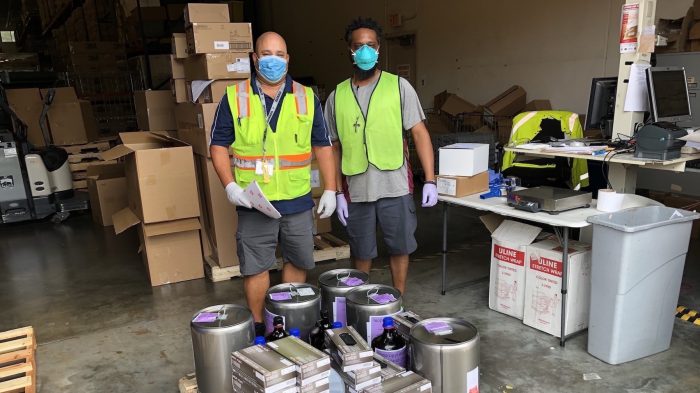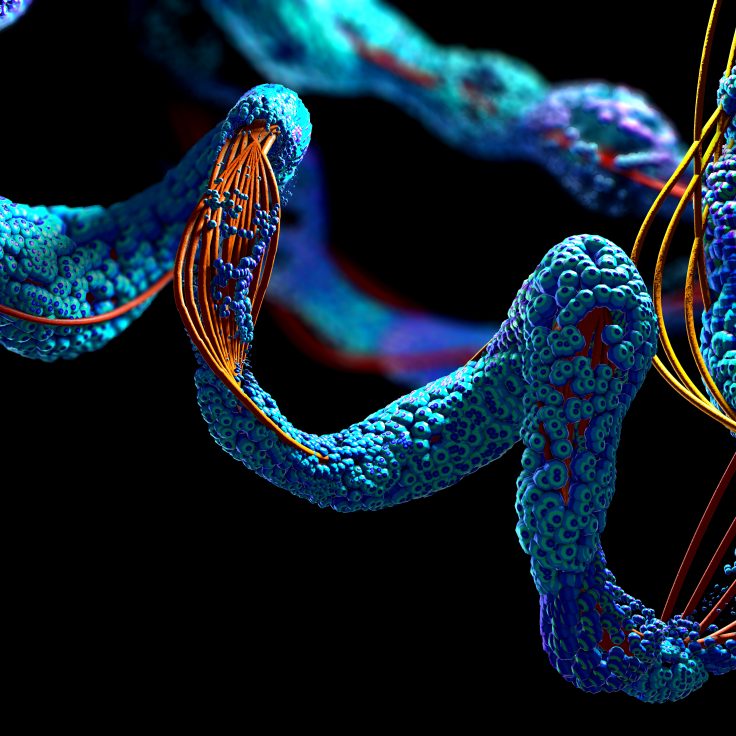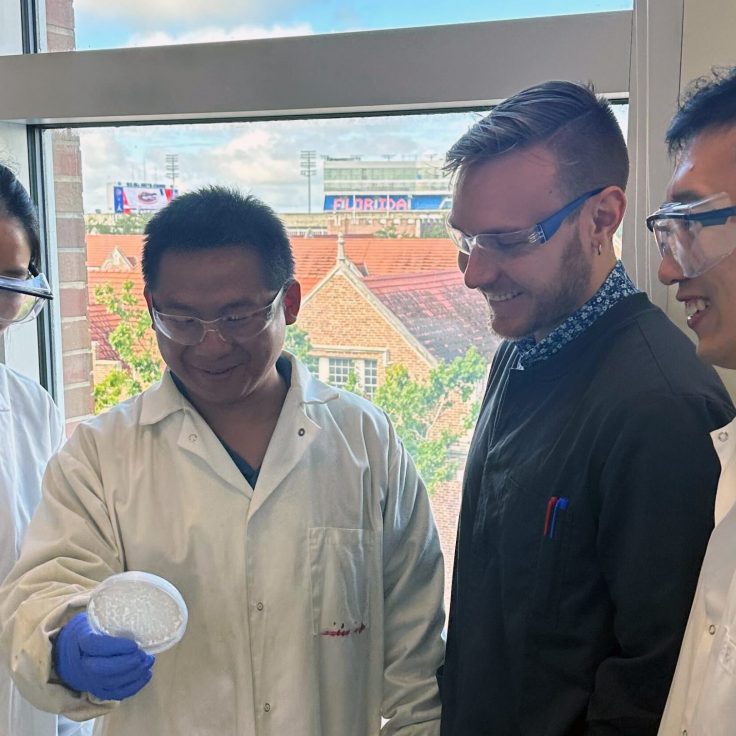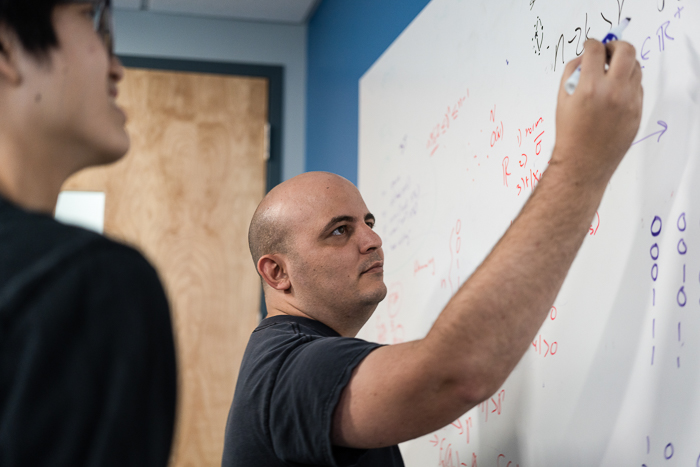
Workers at a UF Health warehouse receive a pallet of hand sanitizer produced by the Department of Chemistry, along with other materials. (Department of Chemistry)
Seeing a Hand Sanitizer Shortage, UF Chemistry Has a Solution
The UF Department of Chemistry has found a creative way to use its expertise to help those on the front lines of the coronavirus crisis.
With courses currently taking place online, the department has begun using teaching labs — no longer buzzing with students taking part in hands-on learning — to produce hundreds of liters of much-needed hand sanitizer for UF Health.
The idea originated in mid-March when teaching lab specialist CANDACE BIGGERSTAFF downloaded a World Health Organization formulation for hand sanitizer and realized the General Chemistry teaching lab had all of the ingredients sitting around unused while students learned from home.
“She made a batch, and the idea just took off from there,” said LISA McELWEE-WHITE, the Colonel Allen R. and Margaret G. Crow Professor of Chemistry and chair of the department.
A request went out to people in the department to donate the necessary reagents so that large quantities could be produced for UF Health, which faced a shortage of bulk hand sanitizer to refill its pumps.
“We knew there were shortages, and we knew we could make it,” McElwee-White said. “All of the components are commonly found in chemistry labs.”
The effort has been led by Biggerstaff, fellow General Chemistry lab specialist JESSICA WEBB, Organic Chemistry lab manager JOSHUA BUSH, and Organic Chemistry lab specialist FRED CARTWRIGHT.
Meanwhile, lab specialist MANASI KAMAT of Spectroscopic Services connected the chemistry team to UF Health to arrange the contribution.
“All the credit to goes to the staff,” McElwee-White said. “They’ve done all the labor. They’re really heroes.”
They’ve produced about 560 liters of hand sanitizer so far, made from two formulas — one ethanol-based and the other isopropyl-based. The Department of Biology also donated ingredients that have been used in the batches.
Now, the department is facing a shortage of their own: they’ve run out of ethanol and are welcoming donations so they can continue chipping in to help healthcare facilities.
“Everyone is doing what they can during this crisis,” McElwee-White said. “This is a place where our skills are applicable.”
To donate quantities of ethanol, isopropyl alcohol, glycerol, or hydrogen peroxide to the Department of Chemistry, contact Lisa McElwee-White at chair@chem.ufl.edu.


